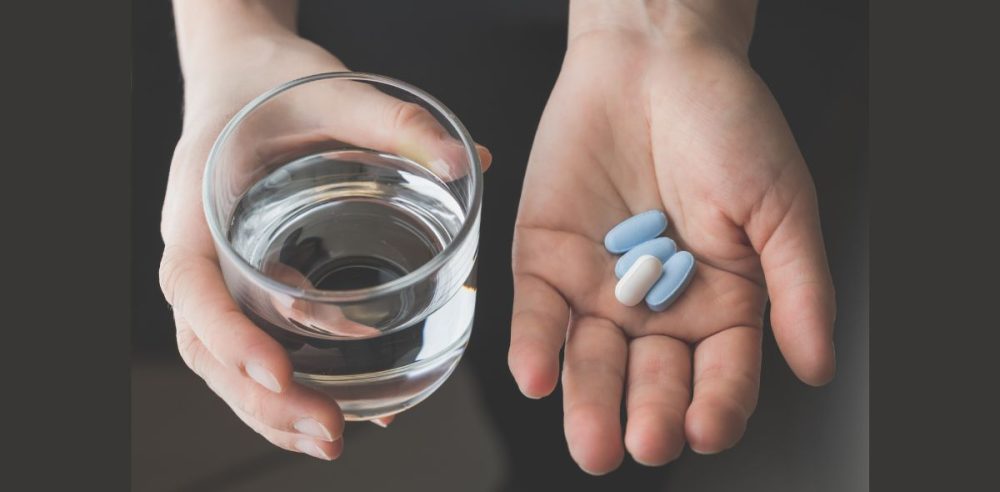Swallowing pills can be a daunting task for many Americans, with studies estimating that nearly 40% of adults face difficulties when taking medications. The reasons vary, ranging from a fear of choking to physical obstacles like dry mouth or an overactive gag reflex.
For the 10% to 15% of people who struggle with heightened throat sensitivity, even simple acts like eating or visiting the dentist can trigger discomfort. Despite these challenges, overcoming this issue is essential for maintaining proper health and adhering to prescribed treatments. Fortunately, medical experts have developed practical strategies to make the process easier and less stressful, reported the New York Post.
By focusing on positioning, breathing, and hydration, patients can gradually improve their ability to swallow pills without anxiety.
One of the most effective strategies involves proper breathing control to reduce throat tension, per the Post. Speech and language pathologists recommend taking a deep breath before placing the pill in the center of the tongue. Holding that breath, followed by a firm swallow while sipping a beverage helps create a smooth path for the pill to slide down. This approach minimizes the chance of gagging by stabilizing the throat muscles. Deep breathing also serves as a relaxation technique, calming nerves that might otherwise worsen the reflex.
Additionally, pairing pills with flavored liquids like juice can mask unpleasant tastes, making swallowing more tolerable.
Innovative swallowing techniques, such as the pop-bottle method, provide even more options for those who continue to struggle. This method requires using a plastic soda bottle filled with water and sealing the lips tightly around its opening. The pill is guided smoothly down the throat by creating suction while taking a sip and maintaining contact with the bottle, reported the Post. The absence of air intake reduces the sensation that triggers gagging, offering a smoother swallowing experience. Researchers have found this method particularly effective for larger tablets or capsules. The pop-bottle technique minimizes discomfort by leveraging natural swallowing mechanics for people with hypersensitive gag reflexes.
Another highly recommended method is the lean-forward technique, which alters the angle of swallowing to optimize pill movement. By placing the pill on the tongue, taking a sip of water, and tilting the head forward, gravity assists in directing the pill to the back of the throat. This method helps align the throat to reduce resistance, facilitating smoother swallowing, reported the Post. Many individuals find this technique more intuitive, especially for capsules that tend to float in the mouth. Coupled with adequate hydration, this approach prevents pills from sticking and alleviates concerns about choking.
Incorporating additional aids, such as pill-coating gels or sprays, can further enhance the swallowing experience. These products create a smooth, slippery surface on pills, reducing friction and easing passage down the throat. They are especially helpful for individuals with dry mouth, which can exacerbate gag reflexes and swallowing difficulties. Similarly, cutting larger pills into smaller pieces, when safe and approved by a doctor, offers another practical solution. In some cases, switching to liquid forms of medication or chewable alternatives may be the best option, per the Post.
Mental preparation also plays a vital role in overcoming the fear of swallowing pills. Visualization exercises and positive affirmations can help reframe negative thoughts about the experience. By combining mental and physical strategies, patients can experience lasting improvements and fewer struggles.
Hydration is a simple yet crucial component in making pill-swallowing easier. Drinking water before and after taking medication lubricates the throat, minimizing friction and irritation, per the Post. Sipping water throughout the day also combats dry mouth, a common condition that exacerbates swallowing issues. Pairing hydration with techniques like the pop-bottle or lean-forward methods maximizes their effectiveness. Many experts also suggest keeping a glass of water on hand to reinforce the habit and maintain readiness for medications.
For individuals who continue to experience difficulties despite trying multiple methods, seeking professional help may be necessary. Speech therapists and medical professionals can provide personalized techniques and therapies to address severe cases.


